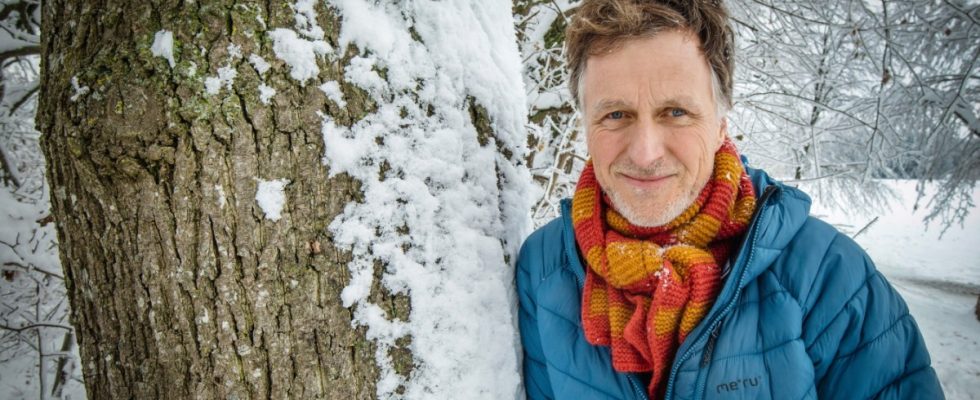Berndt Welz wants to know exactly, which is why he likes to get up close with his camera – and research in depth. “I want to go into detail,” says the filmmaker from Eching am Ammersee. That’s why in his productions faces can be seen so close, as if you were standing directly opposite the protagonists. Or he shows macro shots of animals, tree bark or materials that artisans work with.
The 58-year-old journalist makes documentaries, mostly critically addressing environmental, climate and nature issues. His films have received several awards at international festivals in recent years, including the “Green Screen” nature film festival. But it is much more valuable for him if he achieves something with his films. In his ZDF documentary “Bayer, Farmers and the Bees” from 2019, Welz contributed to the chemical company Bayer taking neonicotinoids, which are highly toxic to insects, off the market. The documentary shows that the funds should never have been approved in the first place. “Then you open some champagne,” says Welz and grins.
Welz is a rather reserved, thoughtful guy who apologizes when he just starts talking. He experienced a lot and had a lot to report, as it turns out at the meeting in Stegen am Ammersee. The director has been editing his current material in a Munich studio for the past few weeks; he brought it with him from Asia. It’s about the production of rubber for car tires. For 3sat and ZDF, Welz followed the tire manufacturers’ convoluted supply chains and their efforts to meet the EU’s transparency requirements.
Welz learned and experienced so much on his research trip that his eyes light up when he begins to report. It quickly becomes clear that he understands the craft of storytelling: he outlines the scene, but quickly gets to the point and discusses the problem in simple, clear language. This is not always easy because the topics are usually complex. Welz also knows how to find exciting images and protagonists through carpentry or apps for measuring heart currents. The viewer often expects a warning final word from the director, but Welz is no preacher. He shows what is. Without pointing fingers. The simple solution – often it doesn’t even exist.
Berndt Welz in the Karakoram Mountains.
(Photo: private)
Welz grew up in Stuttgart “with a lot of forest nearby,” as he says. He spends a lot of time outside and is fascinated by insects. He reroutes ant trails, observes bees and starts petting bumblebees in nature. “That’s still my hobby today. You can really caress them,” he says. After graduating from high school, he wanted to study biology, but the grade wasn’t good enough. So he decides on Spanish and German studies, later switching to economics. When he was twelve years old, he dreamed of becoming a journalist and for that Mirror to work as a foreign correspondent, he says. He goes to the Burda journalism school and volunteers at Munich Evening News – and eventually ends up on television through his hobby of mountain biking.
Because the mountains are his passion, he accompanies the exceptional mountaineer Hans Kammerlander on K2 in the Karakoram Mountains. “K2 – Deadly Passion” is the name of the documentary in which Welz illustrates the tragic experiences that climbers are exposed to on one of the highest mountains in the world at temperatures of minus 45 degrees. Due to the high risk of avalanches, the team has to turn back 150 meters below the summit. The film also tells of the death of Romanian mountaineer Mihai Cioroianu after he was hit by a rock.
Welz talks about the huge presence of nature, the big differences in temperature, and the cohesion of the team. “I was keen to make longer films,” he says. Years later he is once again on the move in the highest mountains of Central Asia: he accompanies Georg Kronthaler on the way to the summit of the 8,047 meter high Broad Peak. A year earlier, his brother died here just a few meters from the summit from exhaustion and lack of fluids; Georg Kronthaler had to leave him behind. A year later, he and his friends want to recover his dead brother’s body. What a mission! The film is highly emotional.
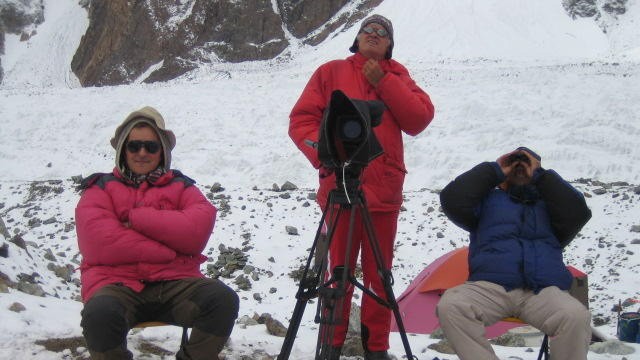
On the way to K2 with the film team.
(Photo: private)
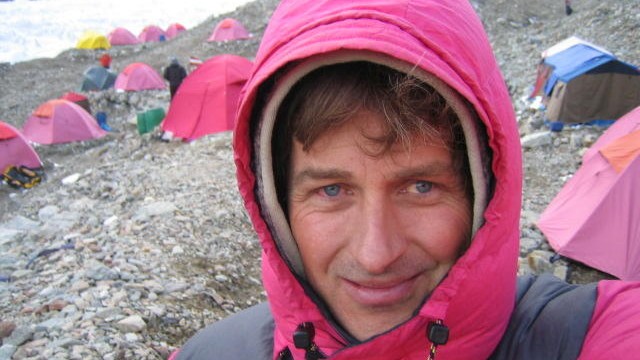
Berndt Welz experiences temperatures down to minus 25 degrees there.
(Photo: private)
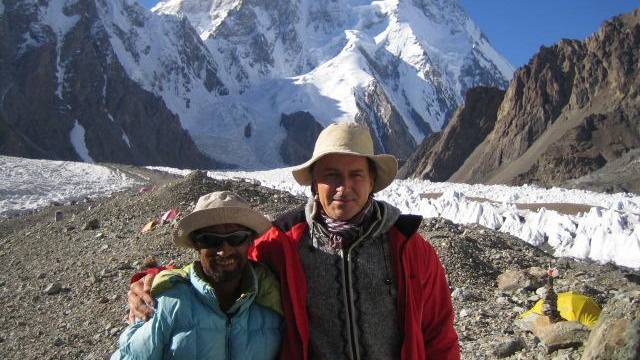
The Ammersee director meets interesting people and is deeply impressed by the forces of nature.
(Photo: private)
Welz worked for various broadcasters, eventually ending up in the editor-in-chief at ProSieben and becoming deputy editorial director at Süddeutsche TV, the former television format of Southgerman newspaper, and editorial director of Wunderwelt Wissen before setting up his own business. Because actually – this became clear to him after a burnout in 2011 at the latest – he just wanted to make “his” films. “For me, collaboration with people is crucial.” He enjoys working in small teams with people who know their craft. Welz reports critically on the farmers’ association and the hunting association and is sharply criticized for it; he accompanies the heart transplant of a little girl and reports on the consequences of man-made climate change on the high alpine locations in the Alps. He completed almost 50 documentaries, most of the ideas came from him.
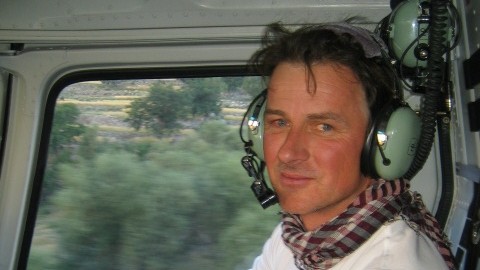
Berndt Welz travels a lot, here in a helicopter in the Karakoram Mountains.
(Photo: private)
The Ammersee director develops a particular passion for insects. Welz is downright fascinated by the intelligence and performance of the little creatures, which can even develop their own personality, as studies suggest. “So cool,” he says. “Smart Insects – How tiny brains achieve brilliant things” is the name of his documentary, which was shown on television for the first time in October. It shows how wasps, bees, bumblebees and earwigs can recognize faces, navigate perfectly and solve difficult mental tasks. “These are our third most important farm animals,” says Welz about the bees, which suffer from pesticides and species loss. “It’s their bad luck that they’re so small.”
In the coming year, Welz wants to devote himself to wasps and cocoa production in South America. Maybe he’ll make a third film, he has enough ideas. But: There should still be time for his hobby, running marathons, and for the family. Welz has two children. And occasionally one or two bumblebees will want to be petted.
“Macro – How car tires threaten the rainforest” by Berndt Welz will be broadcast for the first time on Tuesday, December 12th at 10:25 p.m. on 3sat. On the same day at 10:05 a.m. the “Notizbuch” reports on Bayern 2 on Bayerischer Rundfunk about Berndt Welz’s rubber research.

